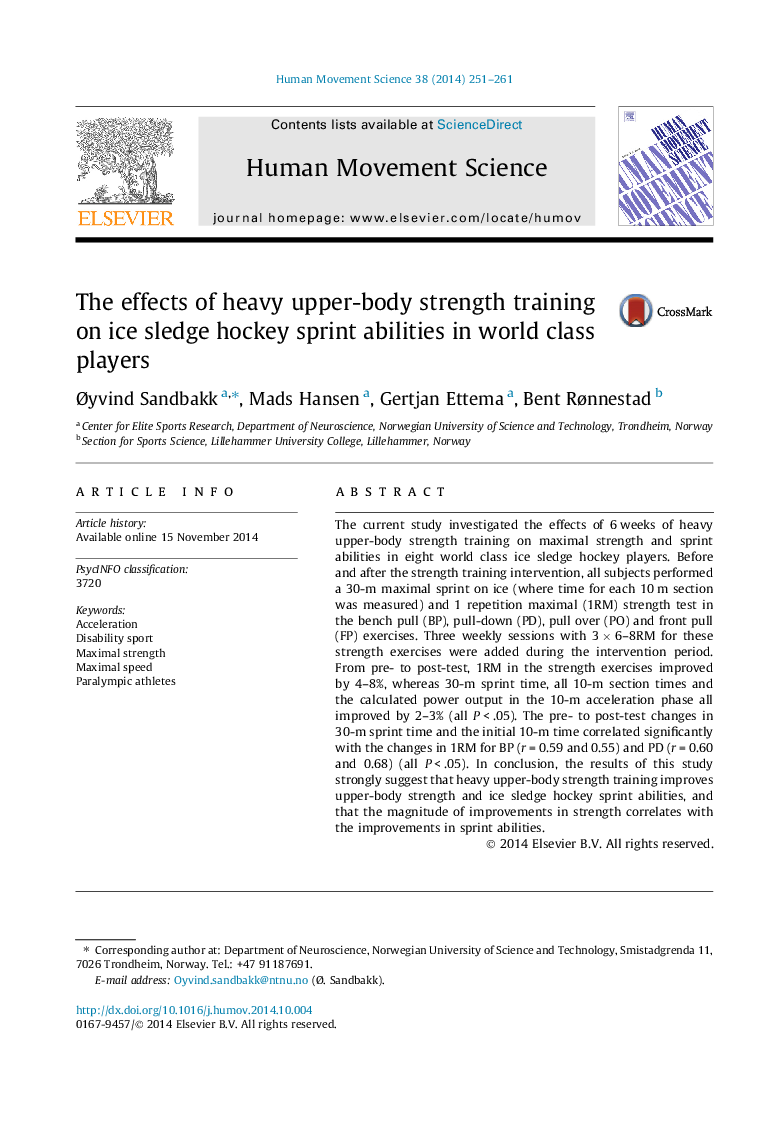| Article ID | Journal | Published Year | Pages | File Type |
|---|---|---|---|---|
| 7292378 | Human Movement Science | 2014 | 11 Pages |
Abstract
The current study investigated the effects of 6 weeks of heavy upper-body strength training on maximal strength and sprint abilities in eight world class ice sledge hockey players. Before and after the strength training intervention, all subjects performed a 30-m maximal sprint on ice (where time for each 10 m section was measured) and 1 repetition maximal (1RM) strength test in the bench pull (BP), pull-down (PD), pull over (PO) and front pull (FP) exercises. Three weekly sessions with 3 Ã 6-8RM for these strength exercises were added during the intervention period. From pre- to post-test, 1RM in the strength exercises improved by 4-8%, whereas 30-m sprint time, all 10-m section times and the calculated power output in the 10-m acceleration phase all improved by 2-3% (all P < .05). The pre- to post-test changes in 30-m sprint time and the initial 10-m time correlated significantly with the changes in 1RM for BP (r = 0.59 and 0.55) and PD (r = 0.60 and 0.68) (all P < .05). In conclusion, the results of this study strongly suggest that heavy upper-body strength training improves upper-body strength and ice sledge hockey sprint abilities, and that the magnitude of improvements in strength correlates with the improvements in sprint abilities.
Related Topics
Life Sciences
Neuroscience
Cognitive Neuroscience
Authors
Ãyvind Sandbakk, Mads Hansen, Gertjan Ettema, Bent Rønnestad,
